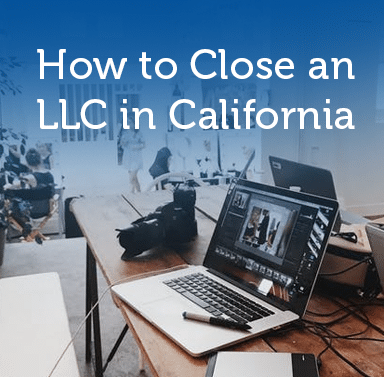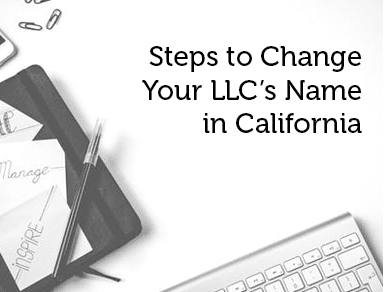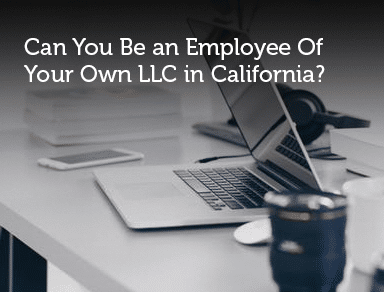More About Limited Liability Companies
In California, a seller’s permit is generally required for businesses that sell tangible personal property subject to sales tax. However, most service-based businesses do not need a seller’s permit if they only provide non-taxable services and do not sell physical goods. Exceptions exist for certain taxable services, such as fabrication, repair, and installation services, where a seller’s permit may be necessary to collect and remit sales tax.
Businesses that sell both services and tangible goods must obtain a seller’s permit, even if the goods are a minor part of their operations. Additionally, while service-only businesses might not need a seller’s permit, they may still be responsible for paying use tax on out-of-state purchases used in California. It’s important for business owners to understand their specific obligations to ensure compliance with California’s tax laws.
Failing to obtain a required seller’s permit can result in penalties and legal consequences. To avoid these risks, businesses should assess their activities carefully and obtain a seller’s permit if needed. The process to acquire a seller’s permit is straightforward and can be completed online through the California Department of Tax and Fee Administration (CDTFA).
Do I Need a Seller’s Permit If I Only Provide Services to a Client and Do Not Sell Physical Goods in California?
When starting a business, especially in a state as large and complex as California, navigating the legal requirements can be daunting. A common question among entrepreneurs is: “Do you need a sellers permit to provide services in California?” One of the common questions that arise is whether a seller’s permit is necessary for service-based businesses that do not sell physical goods. This article will explore this topic in detail, providing clarity on the nuances of California’s tax laws and the specific requirements for businesses that provide services.
Understanding the Seller’s Permit in California
A seller’s permit, also known as a resale permit or sales tax permit, is issued by the California Department of Tax and Fee Administration (CDTFA). It allows businesses to collect sales tax on taxable goods sold in the state and is mandatory for any business that sells tangible personal property subject to sales tax.
But what if you are offering services only? Do you need a sellers permit to provide services in California? For clarity, it is best to identify tangible goods and services.
Tangible Personal Property
Tangible property includes items that can be seen, weighed, measured, felt, or touched, or that are perceptible to the senses in any other manner. This definition typically covers physical goods like clothing, furniture, electronics, and other retail items. When these items are sold, businesses are required to collect sales tax from their customers and remit it to the CDTFA.
However, what happens when a business only provides services and does not sell any physical goods? Does the requirement for a seller’s permit still apply?
Services vs. Tangible Goods: Key Distinctions
In California, the taxation of services is generally different from that of tangible personal property. Most services are not subject to sales tax unless they are specifically enumerated in the state’s tax code. This is a significant distinction because it affects whether a business providing only services needs to obtain a seller’s permit.
Examples of Service-Based Businesses:
- Consulting Firms: Providing expertise, advice, and strategies to clients without selling any physical goods.
- Digital Marketing Agencies: Offering services such as SEO, content creation, and social media management.
- Accountants and CPAs: Providing tax preparation, financial planning, and accounting services.
- Freelancers: Offering services like graphic design, writing, or software development.
- Healthcare Professionals: Such as therapists, chiropractors, and other medical practitioners who provide care but do not sell products.
These businesses generally do not need a seller’s permit if they are exclusively providing services that are not taxable.
When Services Are Taxable
Do you need a sellers permit to provide services in California? The answer would be ‘No’ but while most services in California are not subject to sales tax, there are exceptions. If your business provides certain types of services that are taxed, you may still need to obtain a seller’s permit. Below are some examples of taxable services:
- Fabrication Labor: If your business alters or customizes tangible personal property, the labor involved is taxable. For instance, if you are a tailor who alters clothing, the charge for altering the garments is subject to sales tax.
- Repair Services: Repairing tangible personal property, such as electronics, furniture, or appliances, is considered a taxable service in California. In this case, the business would need a seller’s permit to collect and remit sales tax on the repair services provided.
- Installation Services: Installing tangible personal property can also be subject to sales tax, depending on the circumstances. For example, if a company installs carpet, the installation charge may be taxable.
- Maintenance Contracts: If you sell maintenance contracts that include parts and labor, the entire charge may be taxable, and you would need a seller’s permit to collect sales tax on those services.
- Manufacturing Services: When a business provides a manufacturing service that results in a new product or tangible personal property, it may be subject to sales tax.
In these cases, even though the business primarily provides services, the nature of the services being taxable means that a seller’s permit is required. At best, contractors may need to secure C- licenses like C47 (general manufactured housing), C55 (water conditioning), C57 (well drilling), and other similar licenses enumerated by the California Contractors State License Board.
Mixed Businesses: Selling Both Services and Goods

Sometimes the line between products and services may not feel clear. A physical product may feel like it is part of your services but is, indeed, something you need a seller’s permit for.
But what if you offer both? Do you need a sellers permit to provide services in California, as well as tangible goods? For businesses that offer both services and sell tangible personal property, the need for a seller’s permit becomes clearer. If you sell any tangible goods in addition to your services, you are required to obtain a seller’s permit, even if the services themselves are not taxable.
For example, a salon that provides haircuts (a service) and sells hair care products (tangible goods) needs a seller’s permit to collect sales tax on the products. The permit is also required even if the sales of tangible goods constitute a small portion of the business’s overall revenue.
Use Tax and Its Relevance to Service Providers
So, it’s clear that services are not taxed, but tangible goods are. However, even if your business does not sell tangible goods, you may still have to deal with California’s Use Tax. Use tax is a tax on the use, storage, or consumption of tangible personal property in California when the item is purchased without paying sales tax.
For example, if a service provider purchases office equipment or supplies from an out-of-state vendor who did not charge California sales tax, the service provider is required to pay use tax on those items. The use tax rate is the same as the sales tax rate in the location where the property is used.
While use tax does not necessitate a seller’s permit, it does require the business to register with the CDTFA to report and pay the tax. Therefore, service-based businesses that purchase goods without paying sales tax must be mindful of this obligation.
Registration with the CDTFA: When Is It Required?
Even if your service-based business does not require a seller’s permit, you may still need to register with the CDTFA for other tax obligations. For instance, if your business engages in activities subject to California’s excise tax, such as selling alcohol, tobacco, or fuel, registration is required.
Additionally, businesses that lease tangible personal property may need to register with the CDTFA to collect and remit use tax on those leases.
In summary, while many service-based businesses in California may not need a seller’s permit, there are several scenarios in which registration with the CDTFA is necessary. It’s crucial to understand your business’s specific activities to ensure compliance with state tax laws.
Consequences of Operating Without a Required Seller’s Permit
Perhaps the task of obtaining a license or permit and registering your business seem overwhelming to you and you are tempted to run your company without any of it. Beware though. Failing to obtain a seller’s permit when required can have serious consequences for a business. The CDTFA has the authority to impose penalties and interest on unpaid sales tax, and operating without the necessary permit can result in fines or even criminal charges in extreme cases.
If a business is found to be collecting sales tax without a permit or failing to remit the tax to the state, the penalties can be substantial. In addition to the financial repercussions, the business’s reputation could be damaged, leading to a loss of customers and credibility in the market.
Therefore, it is essential for business owners to accurately assess whether they need a seller’s permit and to comply with all applicable tax laws to avoid these potential pitfalls.
How to Obtain a Seller’s Permit in California
If your business determines that a seller’s permit is necessary, the process to obtain one is relatively straightforward. The CDTFA allows businesses to apply for a seller’s permit online or in person at one of its field offices.
The following steps outline the application process:
Gather necessary information
You will need your business information, including your Employer Identification Number (EIN) or Social Security Number (SSN), business address, and details about the types of products or services you plan to sell.
Complete the application
Visit the CDTFA website and complete the online application for a seller’s permit. Be prepared to provide detailed information about your business activities and ownership structure.
Submit the application
Once the application is completed, submit it through the CDTFA website. If applying in person, you can submit it at a local CDTFA office.
Receive your permit
After the CDTFA processes your application, you will receive your seller’s permit. The processing time may vary, but once you have the permit, you are legally authorized to collect sales tax in California.
Display the permit
The seller’s permit must be displayed prominently at your business location, where customers can see it. This is a legal requirement to ensure transparency in business operations.
File sales tax returns
Once you have a seller’s permit, you are required to file sales tax returns with the CDTFA. These returns report the amount of sales tax collected and must be filed regularly, even if no tax was collected during a reporting period.
Starting a Business? Make Sure You Know Everything About Seller’s Permit and Business Registration to Avoid Trouble!
So, do you need a sellers permit to provide services in California or not? Determining whether your service-based business needs a seller’s permit in California depends on the specific nature of your services and whether you sell any tangible goods. While most services are not subject to sales tax, there are exceptions, and businesses that sell tangible goods alongside services will need a seller’s permit.
Understanding California’s tax laws and your obligations as a business owner is crucial for maintaining compliance and avoiding penalties. If you are unsure whether your business needs a seller’s permit, consulting with a tax professional or legal advisor can provide the guidance needed to ensure that your business operates within the law.
In the ever-changing landscape of business regulations, staying informed and proactive in managing your business’s tax obligations is the key to success. Whether you provide services, sell goods, or a combination of both, understanding the requirements for a seller’s permit in California will help you navigate the complexities of state tax laws with confidence. If you are in doubt, it is always best to consult a reliable business attorney who can help you with all the processes involved.
Incorporation Attorney, a premier corporate law firm in California, offers legal assistance to business owners. Our team’s knowledge of the state’s business laws are essential in getting you through the challenging parts of obtaining your license, business permit application, and especially forming your corporation.
Call us today if you need help with your business startup!













